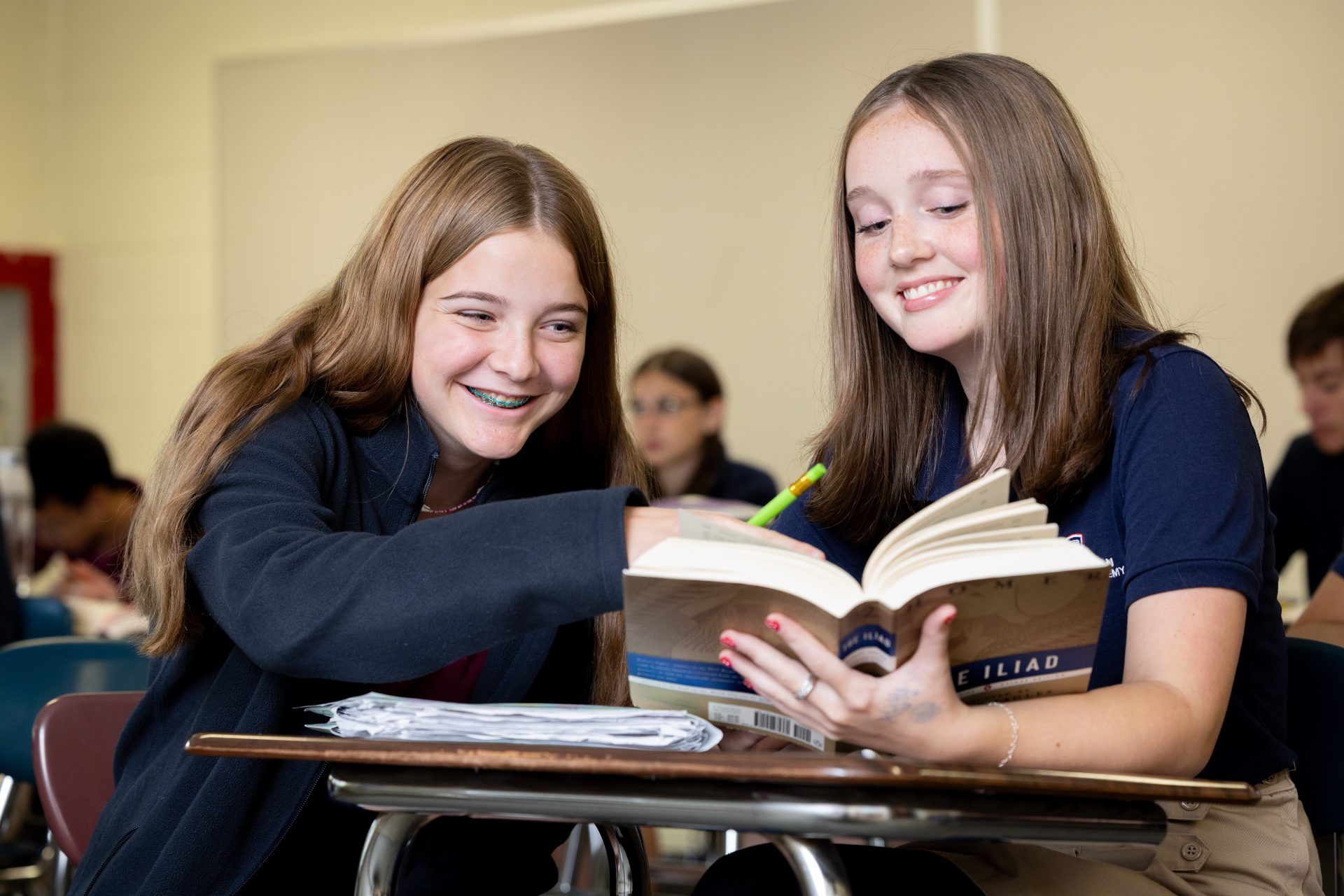A classical education is one that immerses students in the wisdom and accomplishments of the past, so that they can lead purposeful and virtuous lives in the present.
Content-Rich Curriculum – Emphasizes history, literature, philosophy, American traditions, and Latin, grounded in the Western tradition.
Strong Faculty Leadership – Knowledgeable teachers lead learning through traditional methods, not “student-based” trends, while using technology as a tool, not a driver.
Foundational Skills – Includes explicit phonics instruction for reading and Latin study to strengthen language and reasoning.
Objective Standards – Upholds truth, logic, beauty, and excellence as intrinsic to the liberal arts.
Virtuous School Culture – Fosters moral character, respect, discipline, decorum, and studiousness in both students and faculty.

As a parent, you can expect a challenging and structured academic environment. Students are encouraged to push their intellectual limits, and there is a strong emphasis on deep understanding and mastery of content.
Our school requires in depth parental involvement, especially in terms of helping with the memorization of facts–such as orthography, Latin vocabulary, and historical events–or—supporting discussions at home. We also look to parents to help instill manners and proper classroom behavior, such as sitting at their desk and working quietly. Parents are asked to partner with LCA to support school issued consequences.
Your child will likely begin with a heavy focus on memorization and basic facts in the early years, progressing to more analytical and argumentative skills, and eventually refining their ability to express complex ideas clearly. This can feel like a slow process, but it builds a strong intellectual foundation.
Classical education tends to focus not only on academic learning but also on developing virtue, critical thinking, and wisdom. The goal is to raise children who are intellectually capable but also morally grounded. We have seven virtues at our school: courage, perseverance, honesty, self-government, service, courtesy, and friendship. Expect discussions about virtue and moral choices to be part of your child’s education.
As students progress through middle school and high school, they will take increasing ownership of their learning. This will involve opportunities to speak and present to their classmates and, at the high school level, to participate in seminar-style, Socratic discussions. Students at these levels will also be asked to write essays and perform independent research with greater frequency. Their course of study culminates in a Senior Thesis, which requires students to demonstrate mastery of a topic